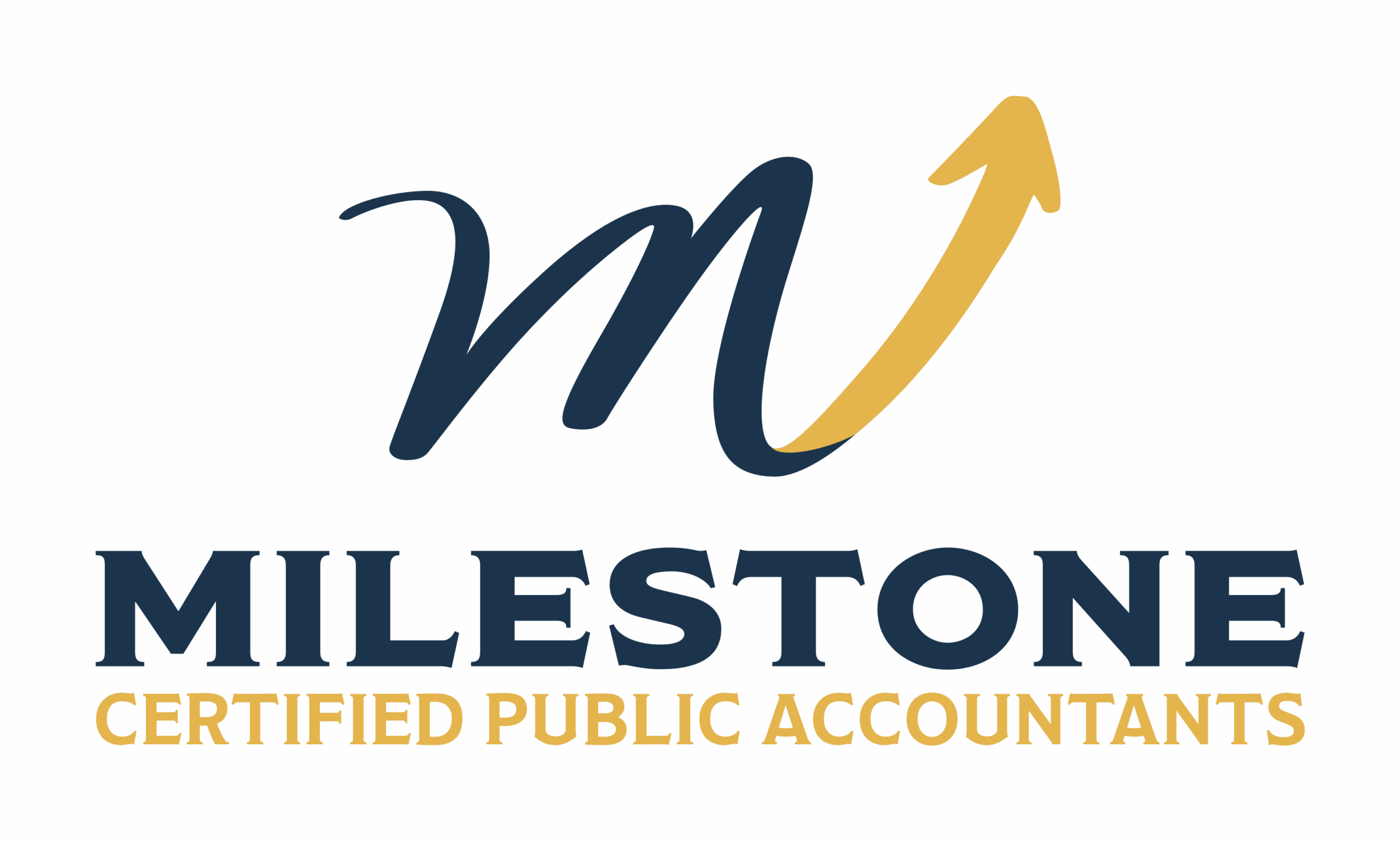Choosing the right business structure can make or break your real estate investment strategy. Whether you’re flipping homes, managing rentals, or syndicating deals, the way you structure your entity affects everything from tax efficiency and legal liability to long-term scalability.
At Milestone Certified Public Accountants Inc., we frequently help investors decide between an LLC and an S-Corp — two of the most common (and most misunderstood) entity options in the real estate world.
Here’s a comprehensive guide to help you understand how each structure works, their advantages and limitations, and how to choose the right one based on your investment goals.
What is an LLC?
A Limited Liability Company (LLC) is a flexible, state-level entity that provides liability protection while offering pass-through taxation.
LLC Pros for Real Estate Investors:
- Asset Protection: Separates personal and business assets, limiting personal liability.
- Pass-Through Taxation: No corporate taxes; income flows to your personal tax return.
- Flexible Structure: Can be single-member or multi-member.
- Ideal for Rental Properties: Especially good for holding appreciating assets.
LLC Cons:
Limited Tax Strategy for Active Income: Less tax control than an S-Corp for high-income earners.
Self-Employment Tax Exposure: Rental income is usually passive, but flipping or short-term rentals may trigger SE tax.
What is an S-Corp?
An S-Corporation (S-Corp) is a tax election — not a business entity — that allows income to be split between salary and distributions, potentially reducing self-employment taxes.
S-Corp Pros for Real Estate Investors:
- SE Tax Savings: Owners can take a “reasonable salary” and receive remaining profits as distributions, which are not subject to self-employment tax.
- Professional Image: Seen as more formal or credible for investors, lenders, or partners.
- Great for Flippers and Real Estate Agents: Where the income is active, not passive.
S-Corp Cons:
Higher Compliance Costs: More IRS scrutiny, required payroll filings, and separate tax returns.Keep a log of vendor payments and verify Social Security Numbers or EINs before year-end using Form W-9.
Strict Requirements: Must pay yourself a reasonable salary, file payroll taxes, and maintain corporate formalities.
Not Ideal for Rental Properties: Passive income doesn’t benefit from S-Corp treatment and may lose depreciation and 1031 exchange advantages.
When Should You Use an LLC?
If your real estate strategy involves:
- Holding rental properties
- Appreciating long-term assets
- Reducing liability and isolating risk
Then an LLC is likely your best choice. It protects you legally, preserves your ability to leverage depreciation and 1031 exchanges, and keeps taxes simple.
💡 CPA Tip: Many investors hold each property in a separate LLC (or under a series LLC) for risk isolation, with income flowing through to a central holding entity.
When Should You Use an S-Corp?
If your real estate income is from:
- Fix-and-flip projects
- Short-term rentals with material participation
- Real estate commissions or active consulting work
Then an S-Corp may significantly reduce your self-employment tax burden.
💡 CPA Tip: You can combine an LLC + S-Corp strategy. Form an LLC, then elect to be taxed as an S-Corp once income reaches ~$80K/year to justify the overhead.
Comparison Table: S-Corp vs LLC for Real Estate Investors
| Feature | LLC | S-Corp |
|---|---|---|
| Liability Protection | ✅ Yes | ✅ Yes |
| Pass-Through Taxation | ✅ Yes | ✅ Yes |
| SE Tax Savings | ❌ No (unless passive) | ✅ Yes (on distributions) |
| Ideal for Rentals | ✅ Yes | ❌ No |
| Ideal for Flipping | ❌ Limited | ✅ Yes |
| Payroll Required | ❌ No | ✅ Yes (W-2 + payroll tax) |
| 1031 Exchange Friendly | ✅ Yes | ❌ Not recommended |
| Setup & Maintenance Cost | 💲 Low | 💲💲 Moderate/High |
Tax Strategy Considerations
- Short-Term Rentals (STRs): If you materially participate, STR income can be non-passive and taxed like active income. An S-Corp might make sense here, but only with careful tax planning.
- Flipping Houses: Treated as ordinary income by the IRS. S-Corp structure can reduce SE tax but may disqualify you from capital gains or depreciation.
- Long-Term Rentals: Stick with LLCs. These offer the best flexibility and long-term tax benefits through depreciation and appreciation.
- Holding Companies: Consider a “parent-child” LLC structure or land trust, depending on your state, for complex portfolios.
Entity Setup Costs and Compliance
- LLC Formation: ~$300–$800 (varies by state) + annual Statement of Information
- S-Corp Election (Form 2553): No cost, but must be filed timely
- Ongoing S-Corp Maintenance: Includes payroll filings, separate tax returns (Form 1120-S), and annual minutes
We help you not only set up your entities properly but also maintain them year-round — from bookkeeping and payroll to tax planning and compliance.

S-Corp vs LLC: Which One is Right for You?
There’s no one-size-fits-all. The best entity depends on your income type, investment goals, and growth strategy. Don’t forget to follow these critical steps prior to establising your business foundation as it could mean saving you not only money but also time, stress, and additional headaches when it comes to swtiching entitiy types down the road.
- Choose an LLC if you’re investing in long-term rental properties.
- Use an S-Corp if you’re earning active income from flips or short-term rentals with material participation.
- Consult a CPA to design a hybrid strategy that protects your assets and minimizes taxes.













